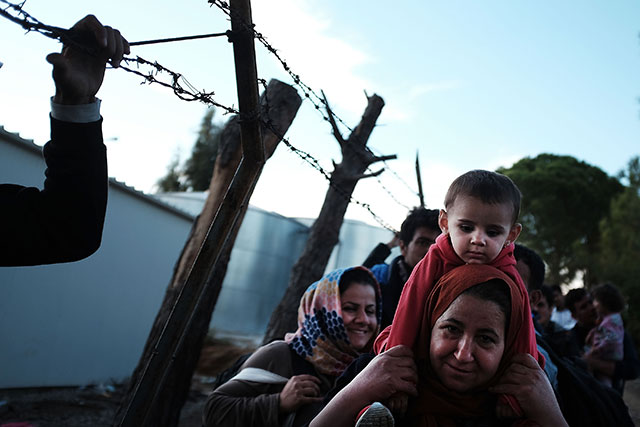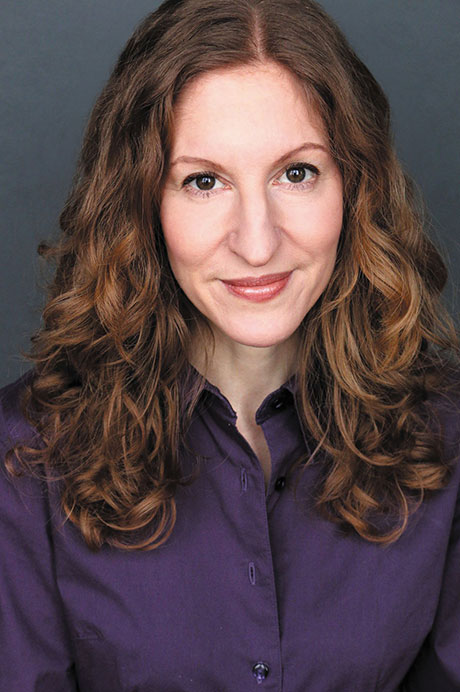
Through their personal narratives, Wendy Pearlman tells the story of Syrian refugees and those persecuted in Syria. Pearlman is optimistic that in the end, the valiant will of the Syrian people will triumph over an oppressive regime and the use of Syrian civilians as pawns in a proxy international conflict.
Mark Karlin: How did you decide to tell the story of the Syrian crisis through the voices of refugees?
Wendy Pearlman: I am a great believer in personal testimonials as a way of honoring how ordinary people make history in general, and bringing to life the human dimension of cruel conflicts, in particular. My first book, Occupied Voices: Stories of Everyday Life from the Second Intifada, was a collection of interviews that I conducted with Palestinians in the West Bank and Gaza Strip in the year 2000. When protests began in Syria in 2011, I was again moved to record personal stories. Syrian citizens were transforming history, and I believed that it was important to document the feelings, thoughts and experiences that were a part of this transformation. As conditions in Syria were becoming increasingly dangerous, I decided to interview Syrians who had fled to other countries. I made my first interviewing trip to Jordan in 2012 and during the years that followed continued interviewing displaced Syrians across the Middle East and then Europe. Over time, I saw how the personal stories that I gathered fit together to tell a larger Syrian story. I curated the book to express that collective narrative, which I hope can help readers both understand the Syrian conflict and deepen their respect for Syrians’ sacrifices, courage and resilience.
What criteria did you use for the persons whom you interviewed?
 Wendy Pearlman. (Photo: HarperCollins Publishers)My initial goal was to interview any Syrian I could. I was convinced that every person had a story, and every person’s story contributed a piece to the larger puzzle of the Syrian conflict. I began the project with just a few contacts and these snowballed into an ever-growing number of entry points into diverse communities and social networks. I made special efforts to speak to people who varied by gender, socio-economic class, rural or urban background, educational level, and home region in Syria, among other characteristics. To this end, I did interviews in eight different countries and different towns within each country.
Wendy Pearlman. (Photo: HarperCollins Publishers)My initial goal was to interview any Syrian I could. I was convinced that every person had a story, and every person’s story contributed a piece to the larger puzzle of the Syrian conflict. I began the project with just a few contacts and these snowballed into an ever-growing number of entry points into diverse communities and social networks. I made special efforts to speak to people who varied by gender, socio-economic class, rural or urban background, educational level, and home region in Syria, among other characteristics. To this end, I did interviews in eight different countries and different towns within each country.
The book offers a diverse portrait, with one important caveat: the overwhelming majority of people I interviewed were opposed to the regime of Bashar al-Assad, and my book focuses on this slice of the Syrian political spectrum. While this does not represent all Syrians, it is a part of the population that meets with too few chances to represent itself. I believe that it is important to understand their perspectives and experiences, and to appreciate what the Syrian revolution means to those who have championed it.
In your introduction and in the categorization of refugee perspectives, you have divided them into sections. Let’s go back to the beginning: How did Syria become an authoritarian one-party military dictatorship?
That is a long story, but here is the political history that I believe to be essential. Under French rule and then after it became a sovereign state in 1946, Syria had a parliamentary system dominated by a small, conservative, affluent elite. This system, already weak, unrepresentative and out of touch with the population, was further discredited by defeat in the 1948 Arab-Israeli War. Against this backdrop, a military coup in 1949 launched what became nearly 15 years of political instability and repeated military interventions in politics. During the same years, socioeconomic developments fostered the rise of a new middle class, an increasingly politicized peasantry and radical political movements, such as the Ba’ath Party. In 1963, army officers affiliated with the Ba’ath Party launched a coup. In 1970, General Hafez al-Assad, one of many Ba’ath rivals jostling for position, margin seized power. Assad built a single-party security state that severely curtailed political rights and freedoms and concentrated power in the person of the president. He ruled through a combination of redistributive economics, a large public sector, an omnipresent security apparatus and pervasive threat of violent repression.
When the Muslim Brotherhood launched an insurrection in the city of Hama in 1982, Assad responded with an assault that flattened the city and left up to tens of thousands dead. This state violence warned generations of what the regime would do to those who challenged it. During the decades that followed, Syrians adopted the expression, “Whisper, the walls have ears,” as a way of indicating that it was safest not even to talk about politics. Meanwhile, the Ba’ath’s once-revolutionary ideology was reduced to increasingly empty rhetoric, while the party stood as a tool for cooptation, surveillance and intimidation.
What relationship does the current Syrian configuration as a nation have to the European colonial era of rule?
The borders of the nation-states in the Eastern Mediterranean — Syria, Lebanon, Iraq, Jordan and the land that now is Israel, the West Bank, and Gaza Strip —were drawn by European powers after the collapse of the Ottoman Empire in World War I. Still, I think it is unhelpful to view these countries as strictly colonial impositions, and thus ignore the agency of the people living there. The post-Ottoman national configurations built on foundations of pre-colonial authenticity. Under late Ottoman rule, trade relations, transportation routes, circulation of newspapers, intellectual movements and other developments began to connect towns and villages in ways that fostered supra-local senses of community. National identities further solidified under colonial rule as governments instituted national symbols, practices and institutions, such as a flag, national currency, school curriculum, state bureaucracy, state laws, police forces and enforced borders. Also, each of these countries birthed anti-colonial movements that sought independence in the name of the nation. That also helped make nation-state identities real and meaningful for citizens. Patriotism continued to solidify during the generations since independence.
Syrians are divided about who should be in power in Syria — but I think, most deeply want Syria to remain a unified country.
Then and now, there remains an important role for identities that are smaller than the nation-state (such as local or family-based ties) or larger than the nation-state (such as Pan-Arabism or transnational Islamism). But I agree with most scholars of the modern Middle East who emphasize that national identities are the chief unit of political belonging in the region today. This was clear in the 2011Arab uprisings to the degree that, in every country, protesters went out in the streets carrying national flags and chanting songs and slogans in the name of the nation. It remains clear to me today as I continue to do interviews with Syrians who are pained by the thought that the Syrian nation-state that they love and cherish might undergo some sort of partition. Syrians are divided about who should be in power in Syria — but I think, most deeply want Syria to remain a unified country.
There is a moving richness of thought and emotion voiced by the people who speak in your book. How do you respond to Donald J. Trump labeling all Syrian refugees — among others — as potential terrorists?
In my opinion, the labeling of all Syrian refugees as potential terrorists is not just factually inaccurate, it is also an unethical slander that smacks of racism and Islamophobia. Syrian refugees, like other refugees, are fleeing the terror of war, persecution and violence by both state and nonstate actors. Who will oppose terror more than those who have been subjected to it?
As I discuss in an essay in The Washington Post, refugees have not carried out terrorist attacks, and most people charged with terrorism in the United States are native-born. I hope that my book, and the plethora of amazing written, audio and visual works by Syrians themselves, can encourage more Americans to listen to Syrian refugees and not believe baseless accusations about them.
Truthout Progressive Pick

“A powerful must-read book for anyone wanting to understand what’s happening in Syria and why it matters.” — Chicago Review of Books
Click here now to get the book!
Given the many nations such as the United States and Russia that are using Syria as a proxy war, do you have any optimism about a resolution in the next few years?
The Syrian war today shows the dominance of geopolitical interests and power struggles, and the absolute shredding of principles of universal human rights and responsibility to protect civilians from atrocities. The international dimension leaves little room for optimism. What gives me optimism, however, is the inspiring strength of the Syrian people. Refugees scattered across the globe continue to work to achieve their aspirations and dignified futures for their families.
Activists in Syria, as well as those who have been forcibly displaced from it, continue to undertake ingenious initiatives to build institutions of self-governance, to demand accountability for abuses, to resist tyranny in all its forms, and to keep people alive amidst nightmarish violence. They continue to bring tremendous talent and creativity to the struggle for freedom. I hope that more people will try to learn about and support their efforts, and also demand that our government take more meaningful action to bring about a genuine political transition in Syria.
Join us in defending the truth before it’s too late
The future of independent journalism is uncertain, and the consequences of losing it are too grave to ignore. To ensure Truthout remains safe, strong, and free, we need to raise $50,000 in the next 9 days. Every dollar raised goes directly toward the costs of producing news you can trust.
Please give what you can — because by supporting us with a tax-deductible donation, you’re not just preserving a source of news, you’re helping to safeguard what’s left of our democracy.